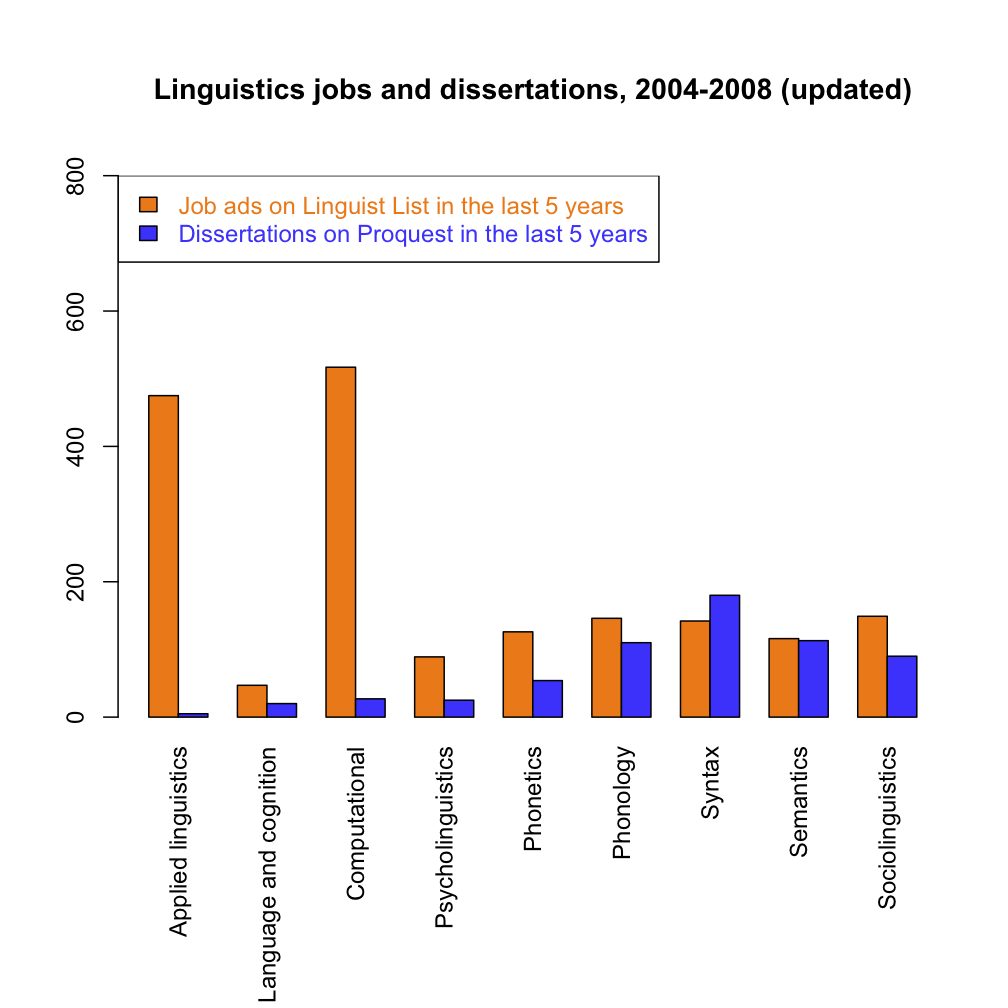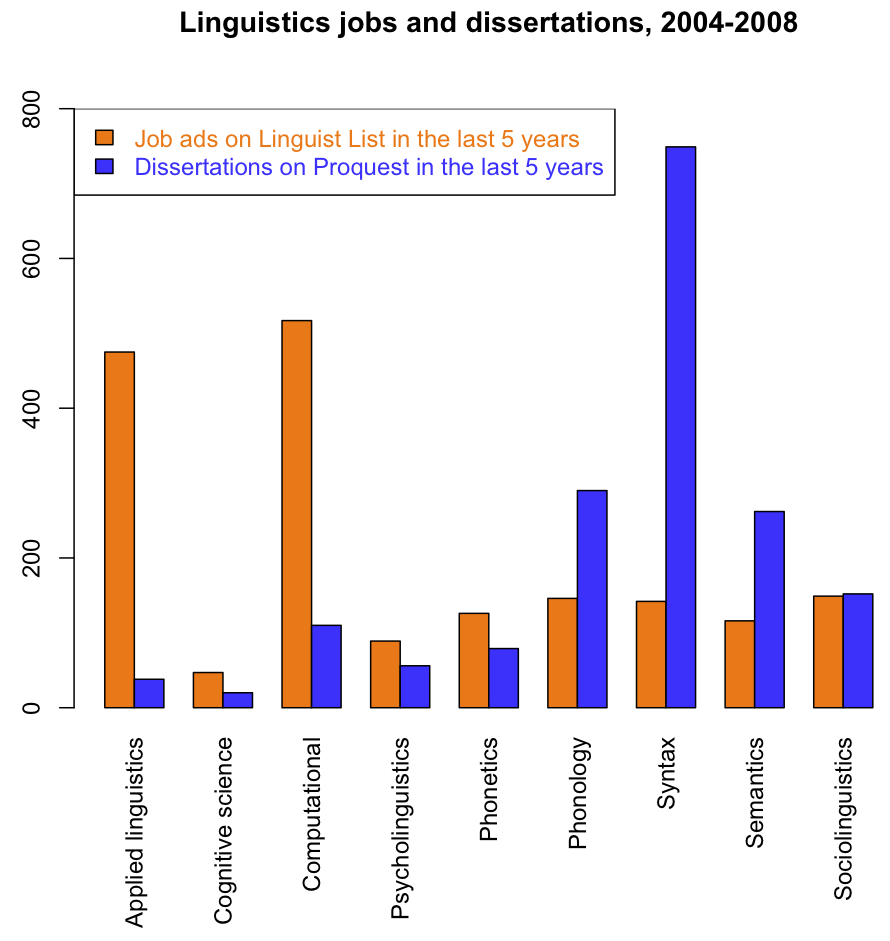This is a long-overdue follow-up to my post (from April 26), announcing the availability of the film The Linguists on Babelgum.com. A couple things that I failed to point out in that post: first, the version of the film on Babelgum is the DVD version, not the slightly shorter cut that has aired on PBS; second, there are several additional clips that you can watch separately on Babelgum that are on the DVD. Search for "the linguists" on Babelgum and you'll find links to the trailer, the film, and the additional clips. These are all available for some unspecified limited period, so watch 'em now if you're interested.
What I'm really following up on here, though, is this comment by Jesse Tseng.
I was struck by this sentence [in the film, spoken by David Harrison–eb]:
I don't see how you can justify devoting your research career to the syntax of French (a language with millions of speakers), when the skills that you possess could help document a language that is going to go extinct within your lifetime.
Hmm. The fieldwork skills I possess would make me go extinct long before any tribal language I helped to document. And good luck doing any syntax at all with your 15 sentences of Kallawaya…
Seriously, I was disappointed to hear this gratuitous swipe at the colleagues down the hall. I would like to believe that we are all engaged in a common endeavor, with the same justifications. And when linguistics departments get cut, all the sub-fields of linguistics go down together. Or are they hoping that the money then gets funneled into Anthropology?
Read the rest of this entry »

